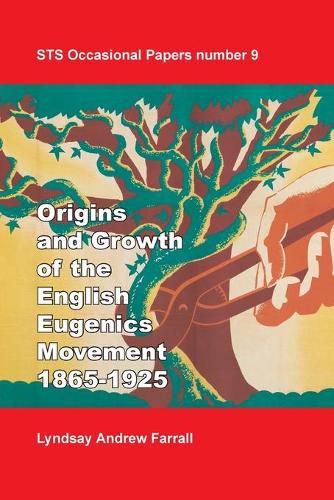Readings Newsletter
Become a Readings Member to make your shopping experience even easier.
Sign in or sign up for free!
You’re not far away from qualifying for FREE standard shipping within Australia
You’ve qualified for FREE standard shipping within Australia
The cart is loading…






This title is printed to order. This book may have been self-published. If so, we cannot guarantee the quality of the content. In the main most books will have gone through the editing process however some may not. We therefore suggest that you be aware of this before ordering this book. If in doubt check either the author or publisher’s details as we are unable to accept any returns unless they are faulty. Please contact us if you have any questions.
Lyndsay Farrall’s 1969 doctoral dissertation reveals the origins and operations of the biometric school of eugenics, which developed in London before the Great War. Key figures included Francis Galton, Karl Pearson, and Walter Raphael Weldon. Galton developed the Eugenics Record Office, which became the Galton Laboratory for National Eugenics located at University College London. Farrall tracks the development of research within these units as well as their campaigns for political action and their efforts to enlist others from university communities in London.
Farrall’s widely cited original reserarch argues these men developed an distinct subculture within English eugenics focused on statistical and demographic analysis. His study is important for ongoing interest into how universities supported, encouraged, or passively allowed dubious research to develop under their oversight. It offers lessons for the way science succeeds or fails to check its work for bias and misappropriation. It traces the influence of donations on research direction and autonomy.
Facsimile edition. Farrall, Lyndsay Andrew. 1969. The origins and growth of the English eugenics movement, 1865-1925. PhD, University of Indiana.
$9.00 standard shipping within Australia
FREE standard shipping within Australia for orders over $100.00
Express & International shipping calculated at checkout
This title is printed to order. This book may have been self-published. If so, we cannot guarantee the quality of the content. In the main most books will have gone through the editing process however some may not. We therefore suggest that you be aware of this before ordering this book. If in doubt check either the author or publisher’s details as we are unable to accept any returns unless they are faulty. Please contact us if you have any questions.
Lyndsay Farrall’s 1969 doctoral dissertation reveals the origins and operations of the biometric school of eugenics, which developed in London before the Great War. Key figures included Francis Galton, Karl Pearson, and Walter Raphael Weldon. Galton developed the Eugenics Record Office, which became the Galton Laboratory for National Eugenics located at University College London. Farrall tracks the development of research within these units as well as their campaigns for political action and their efforts to enlist others from university communities in London.
Farrall’s widely cited original reserarch argues these men developed an distinct subculture within English eugenics focused on statistical and demographic analysis. His study is important for ongoing interest into how universities supported, encouraged, or passively allowed dubious research to develop under their oversight. It offers lessons for the way science succeeds or fails to check its work for bias and misappropriation. It traces the influence of donations on research direction and autonomy.
Facsimile edition. Farrall, Lyndsay Andrew. 1969. The origins and growth of the English eugenics movement, 1865-1925. PhD, University of Indiana.